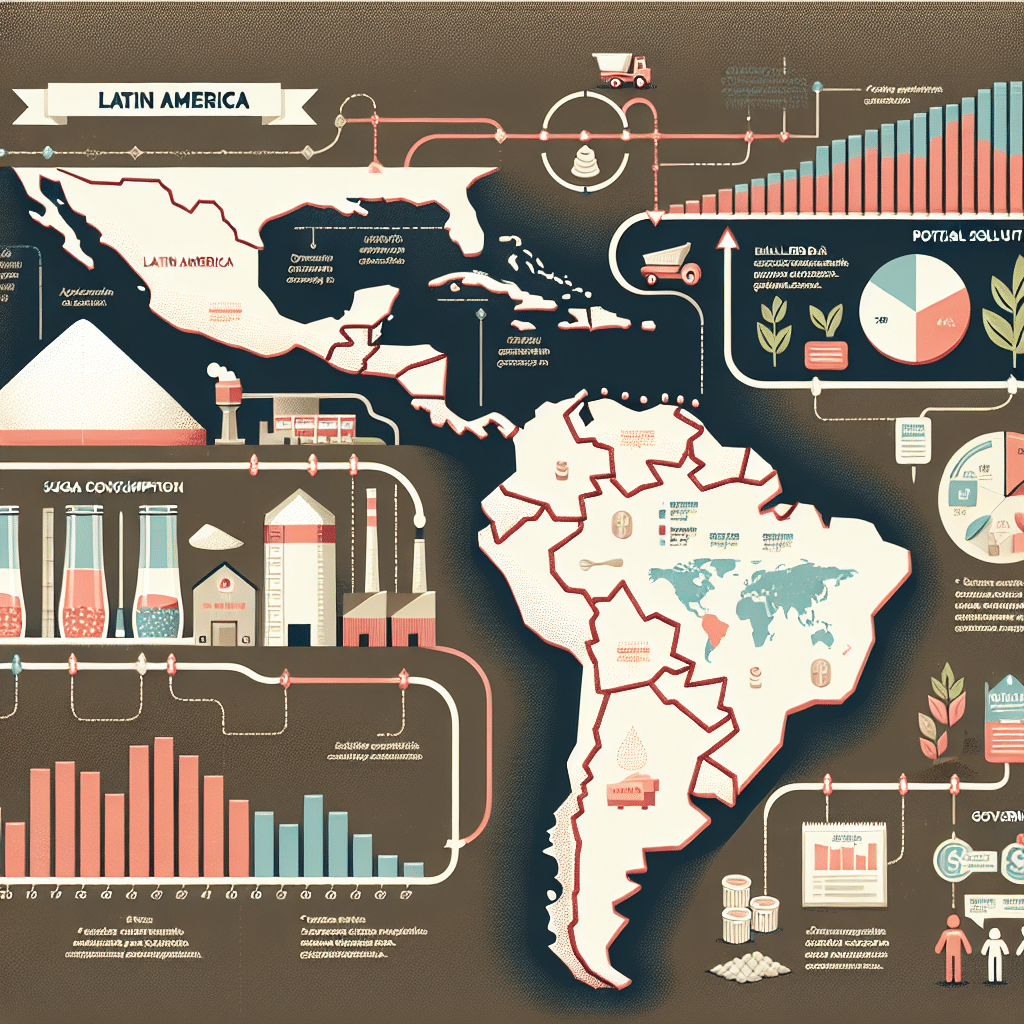Sugar Reduction in Latin America: Industry Challenges and Solutions
-
Table of Contents
- Sugar Reduction in Latin America: Tackling Industry Challenges with Innovative Solutions
- The Sweet Challenge: Sugar Consumption in Latin America
- Industry Challenges in Reducing Sugar
- Innovative Solutions for Sugar Reduction
- Case Studies: Success Stories in Sugar Reduction
- Statistics: The Impact of Sugar Reduction Efforts
- Conclusion: The Sweet Spot of Sugar Reduction
- ETprotein: Enhancing Health with Protein Alternatives
Sugar Reduction in Latin America: Tackling Industry Challenges with Innovative Solutions

The consumption of sugar in Latin America has been a growing concern for health professionals and policymakers alike. With high rates of obesity, diabetes, and other non-communicable diseases, reducing sugar intake has become a public health priority. The food and beverage industry faces significant challenges in this endeavor, but also has the opportunity to lead with innovative solutions. This article explores the challenges and solutions related to sugar reduction in Latin America.
The Sweet Challenge: Sugar Consumption in Latin America
Latin America has some of the highest per capita sugar consumption rates in the world. This is partly due to cultural preferences for sweet flavors and the widespread availability of sugary foods and beverages. The consequences of this high sugar intake are evident in the region’s health statistics, with countries like Mexico and Chile reporting high rates of obesity and diabetes.
- According to the World Health Organization (WHO), in 2016, over 58% of the Latin American population was overweight, with obesity affecting 23% of adults.
- Diabetes prevalence in the region is also alarming, with estimates suggesting that 1 in 12 adults live with this condition.
Industry Challenges in Reducing Sugar
The food and beverage industry in Latin America faces several challenges when it comes to reducing sugar content in their products:
- Consumer Preferences: A preference for sweet tastes makes it difficult to reduce sugar without affecting product appeal.
- Economic Considerations: Sugar is often a cost-effective ingredient, and reducing or replacing it can increase production costs.
- Regulatory Environment: Inconsistent regulations across countries can complicate reformulation efforts.
- Technical Limitations: Finding suitable sugar alternatives that maintain product quality and shelf life is challenging.
Innovative Solutions for Sugar Reduction
To overcome these challenges, the industry is exploring a variety of innovative solutions:
- Reformulation: Developing new recipes that lower sugar content while maintaining taste and texture.
- Natural Sweeteners: Using sweeteners derived from plants, such as stevia, which provide sweetness without the calories.
- Flavor Modifiers: Employing flavor-modifying ingredients that enhance the perception of sweetness.
- Portion Control: Reducing package sizes to naturally limit sugar intake per serving.
Case Studies: Success Stories in Sugar Reduction
Several Latin American countries and companies have made strides in reducing sugar content:
- Chile’s Law of Food Labeling and Advertising: Implemented in 2016, this law mandates warning labels on products high in sugar, leading to reformulation efforts by many companies.
- Mexico’s Sugar Tax: Introduced in 2014, this tax on sugary beverages has resulted in a decrease in consumption and prompted manufacturers to offer lower-sugar options.
Statistics: The Impact of Sugar Reduction Efforts
Efforts to reduce sugar consumption are showing promising results:
- A study published in the journal PLOS Medicine found that Chile’s food labeling law led to a 23.7% reduction in the purchase of sugary beverages.
- In Mexico, research indicates that the sugar tax has led to a sustained decrease in sugary drink purchases, with a 7.6% reduction observed in the second year of implementation.
Conclusion: The Sweet Spot of Sugar Reduction
Reducing sugar consumption in Latin America is a complex challenge that requires a multifaceted approach. The industry must navigate consumer preferences, economic constraints, regulatory landscapes, and technical hurdles. However, through innovative reformulation, the use of natural sweeteners, flavor modifiers, and portion control, progress is being made. Success stories from countries like Chile and Mexico offer valuable lessons and demonstrate the positive impact of concerted sugar reduction efforts.
ETprotein: Enhancing Health with Protein Alternatives
As the food and beverage industry in Latin America continues to evolve, there is a growing interest in healthier alternatives to traditional ingredients. ETprotein offers a range of high-quality protein products that can serve as nutritious alternatives to high-sugar ingredients. Their organic bulk vegan proteins and L-(+)-Ergothioneine (EGT) are ideal for companies looking to innovate and improve the health profile of their products.
ETprotein’s offerings are characterized by a neutral taste, non-GMO, allergen-free attributes, and high purity levels, making them suitable for a wide range of applications. By incorporating these protein products into their formulations, companies can reduce sugar content while enhancing the nutritional value of their offerings, meeting consumer demand for healthier options.
About ETprotein:
ETprotein, a reputable protein and L-(+)-Ergothioneine (EGT) Chinese factory manufacturer and supplier, is renowned for producing, stocking, exporting, and delivering the highest quality organic bulk vegan proteins and L-(+)-Ergothioneine. They include Organic rice protein, clear rice protein, pea protein, clear pea protein, watermelon seed protein, pumpkin seed protein, sunflower seed protein, mung bean protein, peanut protein, and L-(+)-Ergothioneine EGT Pharmaceutical grade, L-(+)-Ergothioneine EGT food grade, L-(+)-Ergothioneine EGT cosmetic grade, L-(+)-Ergothioneine EGT reference grade and L-(+)-Ergothioneine EGT standard. Their offerings, characterized by a neutral taste, non-GMO, allergen-free attributes, with L-(+)-Ergothioneine purity over 98%, 99%, cater to a diverse range of industries. They serve nutraceutical, pharmaceutical, cosmeceutical, veterinary, as well as food and beverage finished product distributors, traders, and manufacturers across Europe, USA, Canada, Australia, Thailand, Japan, Korea, Brazil, and Chile, among others.
ETprotein specialization includes exporting and delivering tailor-made protein powder and finished nutritional supplements. Their extensive product range covers sectors like Food and Beverage, Sports Nutrition, Weight Management, Dietary Supplements, Health and Wellness Products, and Infant Formula, ensuring comprehensive solutions to meet all your protein needs.
As a trusted company by leading global food and beverage brands and Fortune 500 companies, ETprotein reinforces China’s reputation in the global arena. For more information or to sample their products, please contact them and email sales(at)ETprotein.com today.












